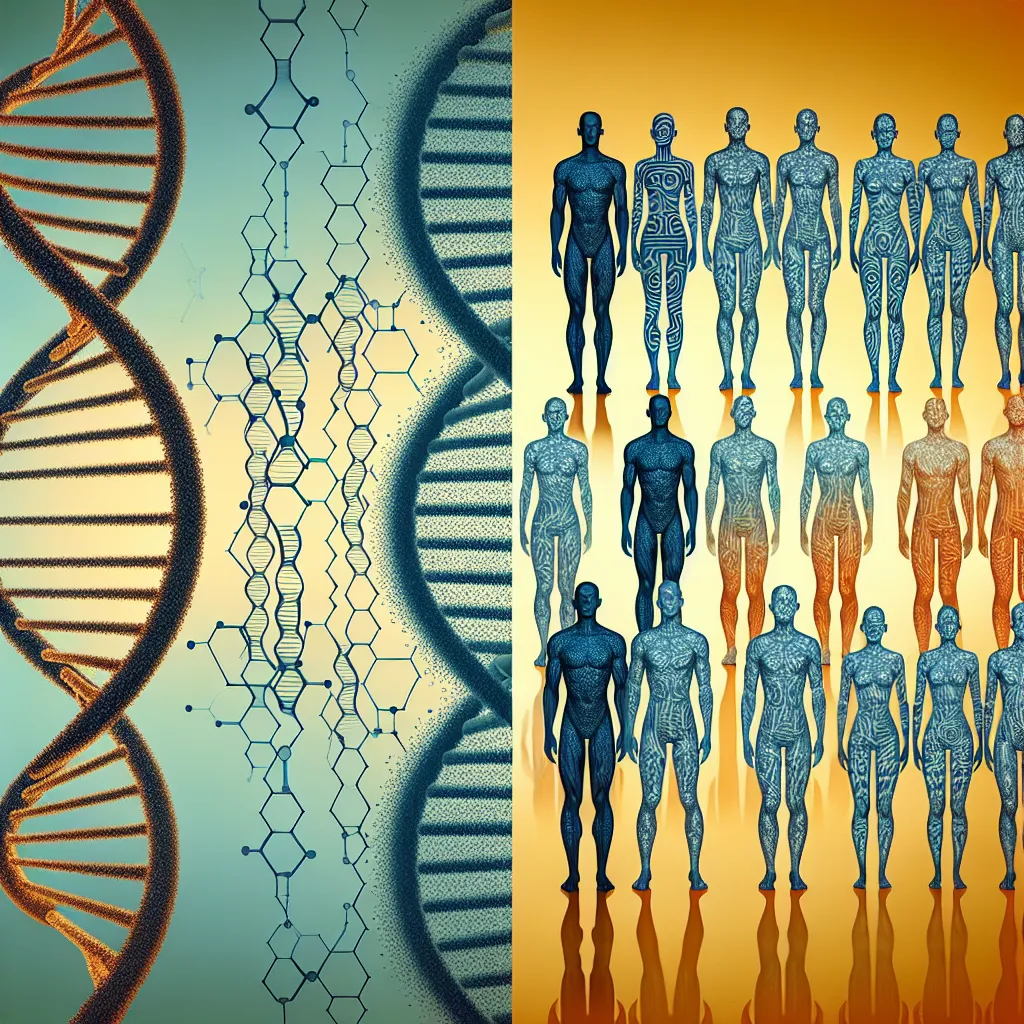The topic of cloning and its ethical implications has been a recurring theme in IELTS Writing Task 2 over the years. Based on past exam trends and the current relevance of biotechnology, it’s likely that this topic will continue to appear in future tests. Let’s explore a sample question and learn how to craft a compelling essay on this thought-provoking subject.
Analyzing the Task
Let’s consider the following IELTS Writing Task 2 question:
Some people think that human cloning should be allowed, while others are against it. Discuss both views and give your own opinion.
This question requires you to:
- Discuss arguments for allowing human cloning
- Discuss arguments against human cloning
- Provide your personal opinion on the matter
Remember to address all parts of the question and maintain a balanced approach throughout your essay.
Sample Essay (Band 8-9)
Here’s a high-scoring sample essay that effectively addresses the question:
The debate surrounding human cloning has intensified in recent years, with proponents highlighting its potential benefits and opponents raising ethical concerns. This essay will examine both perspectives before presenting my own viewpoint on this contentious issue.
Those in favor of human cloning argue that it could revolutionize medical treatments. For instance, cloning technology could potentially allow scientists to grow replacement organs, reducing the need for donors and saving countless lives. Additionally, cloning might enable researchers to better understand and treat genetic diseases by studying cloned human cells. Supporters also contend that cloning could offer hope to infertile couples who wish to have genetically related children.
On the other hand, opponents of human cloning raise significant ethical objections. One primary concern is the potential for exploitation, as cloning could lead to the creation of humans for specific purposes, such as organ harvesting or labor. There are also worries about the psychological impact on cloned individuals, who may struggle with issues of identity and individuality. Furthermore, critics argue that cloning interferes with the natural order of life and could have unforeseen consequences for human evolution.
In my opinion, while the potential medical benefits of human cloning are compelling, the ethical risks outweigh these advantages at present. The possibility of creating human life solely for utilitarian purposes raises profound moral questions that our society may not be prepared to address. Moreover, the long-term effects of cloning on individuals and society as a whole remain unknown, warranting a cautious approach.
In conclusion, the debate over human cloning involves complex ethical considerations that must be carefully weighed against potential benefits. While I believe that the risks currently outweigh the rewards, continued research and public discourse on this topic are essential to guide future policy decisions.
(Word count: 295)
 Ethical implications of human cloning
Ethical implications of human cloning
Sample Essay (Band 6-7)
Now, let’s look at a sample essay that would typically score in the Band 6-7 range:
Human cloning is a controversial topic that many people have different opinions about. Some think it should be allowed, while others are against it. In this essay, I will discuss both views and give my own opinion.
People who support human cloning say it could have many benefits. For example, it might help doctors grow new organs for sick people who need them. This could save many lives. Also, cloning could help scientists learn more about diseases and how to treat them. Some people think cloning could help couples who can’t have children naturally.
However, there are also arguments against human cloning. Many people worry that it is not ethical to create human life in this way. They think it might be used to make people for specific purposes, which is wrong. There are also concerns about how cloned people might feel, as they would be copies of someone else. Some people believe cloning goes against nature and could cause problems we don’t know about yet.
In my opinion, I think human cloning should not be allowed right now. While there might be some good things about it, I believe the risks are too high. We don’t know enough about how it might affect people and society. It’s important to be careful when dealing with human life.
To conclude, human cloning is a complex issue with both good and bad points. I think we need to do more research and have more discussions about it before deciding if it should be allowed or not.
(Word count: 253)
Key Points to Remember When Writing
-
Structure: Both essays follow a clear structure with an introduction, body paragraphs discussing both views, the writer’s opinion, and a conclusion. The higher-scoring essay demonstrates more sophisticated paragraph development and cohesion.
-
Vocabulary: The Band 8-9 essay uses more advanced vocabulary and expressions (e.g., “contentious issue,” “revolutionize,” “unforeseen consequences”), while the Band 6-7 essay uses simpler language but still conveys the main ideas effectively.
-
Grammar: The higher-scoring essay employs a wider range of grammatical structures and more complex sentences. The Band 6-7 essay uses simpler structures but generally maintains grammatical accuracy.
-
Task Response: Both essays address all parts of the question, but the Band 8-9 essay provides more detailed and nuanced arguments.
-
Coherence and Cohesion: The Band 8-9 essay demonstrates better use of linking words and phrases to connect ideas smoothly. The Band 6-7 essay is coherent but uses simpler linking devices.
Important Vocabulary to Remember
Here are some key terms related to the topic of cloning and ethics that you should know:
-
Cloning (noun) /ˈkləʊnɪŋ/ – The process of creating an identical copy of a biological entity.
-
Ethical (adjective) /ˈeθɪkl/ – Relating to moral principles or the branch of knowledge dealing with these.
-
Implications (noun) /ˌɪmplɪˈkeɪʃnz/ – The conclusions that can be drawn from something, although not explicitly stated.
-
Biotechnology (noun) /ˌbaɪəʊtekˈnɒlədʒi/ – The use of living systems and organisms to develop or make products.
-
Exploitation (noun) /ˌekspɔɪˈteɪʃn/ – The action of treating someone unfairly in order to benefit from their work.
-
Utilitarian (adjective) /ˌjuːtɪlɪˈteəriən/ – Designed to be useful or practical rather than attractive.
-
Genetic (adjective) /dʒəˈnetɪk/ – Relating to genes or heredity.
-
Embryo (noun) /ˈembriəʊ/ – An unborn offspring in the process of development.
-
Stem cells (noun) /stem selz/ – Undifferentiated biological cells that can differentiate into specialized cells.
-
Bioethics (noun) /ˌbaɪəʊˈeθɪks/ – The study of the ethical issues emerging from advances in biology and medicine.
Conclusion
The ethical implications of cloning remain a relevant and challenging topic in IELTS Writing Task 2. To excel in essays on this subject, focus on presenting balanced arguments, using appropriate vocabulary, and structuring your response clearly. Practice writing essays on related topics such as genetic engineering, artificial organs, or the broader field of biotechnology to enhance your skills further.
We encourage you to try writing your own essay on this topic and share it in the comments section below. This practice will help you refine your writing skills and prepare for the IELTS exam. Remember, consistent practice is key to improving your performance in IELTS Writing Task 2!


